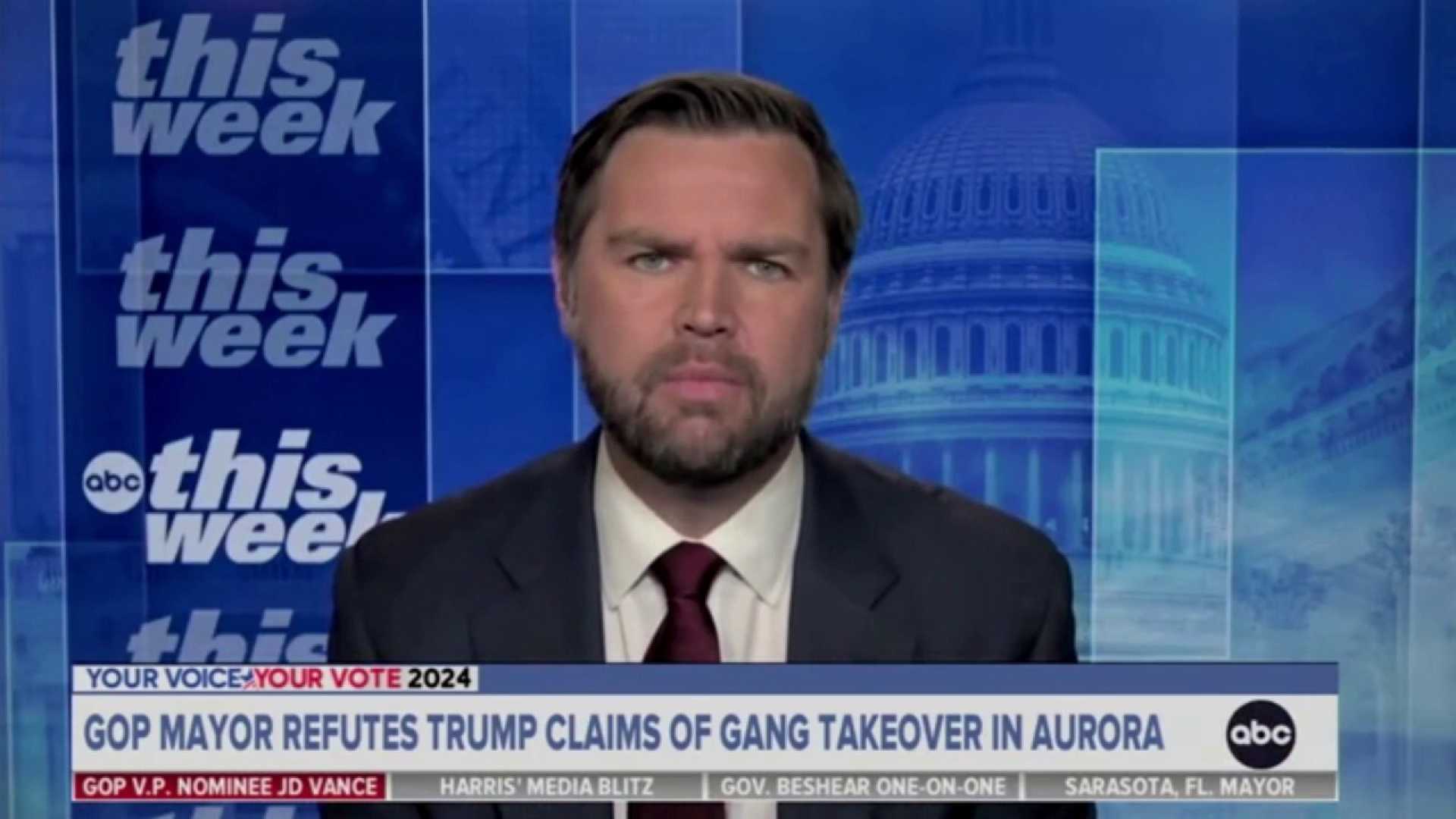Politics
JD Vance Criticizes Media Coverage in Aurora Incident

In the final stages of the presidential campaign, JD Vance, the vice-presidential candidate running alongside Donald Trump, has highlighted his criticism of what he perceives as biased media coverage. A significant moment arose during an exchange on ABC with veteran correspondent Martha Raddatz concerning recent violence in Aurora, Colorado.
Vance, aged 40, questioned Raddatz’s portrayal of a violent takeover by a gang of Venezuelan immigrants in Aurora. Raddatz, 71, termed these events as “incidents” and suggested that they were being overstated by Trump. In response, Vance incredulously asked, “Martha, do you hear yourself?” This phrase, he emphasized, could become a hallmark of their campaign.
Earlier in the campaign, Donald Trump referred to the situation in Aurora as an “invasion” by illegal immigrant criminals and promised to implement “Operation Aurora” if elected. This plan involves invoking the 1798 Alien Enemies Act to arrest and deport those found guilty of illegal activities. “I will rescue Aurora and every town that has been invaded and conquered,” Trump declared.
During her questioning, Raddatz characterized the takeover as limited to “a handful of apartment complexes.” Vance countered, questioning whether the problem lay with Trump’s rhetoric or the current administration’s border policies. “Americans are so fed up with what’s going on,” he stated, further criticizing the current approach to immigration.
Reports indicate that individuals associated with the Venezuelan gang Tren de Aragua were detained in September following their control over an Aurora apartment complex, where they allegedly committed extortion, child prostitution, and other criminal acts.
While Vance has been a focal point in this campaign, his demeanor contrasts with his running mate, Tim Walz, who has faced criticism for campaign missteps. Vance’s composed manner has drawn comparisons, solidifying his position in the current political landscape.
Some observers have suggested that Raddatz’s approach reflected broader media biases in Washington, where journalists are perceived as more aligned with Democratic policies. Critics argue that this results in confrontational journalism, particularly during interviews with Republican figures like Vance and Trump.












